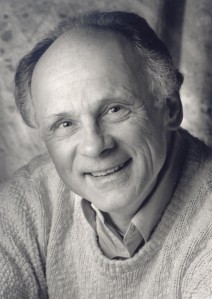Nicholas Johnson is interviewed in the above video. Below is an excerpt from the full story found on KCRG.com [source]
IOWA CITY, Iowa – Some local viewers might have noticed a change – perhaps an improvement – in their television viewing experience of late. We’re not talking about the disappearance of political ads, although many are relieved those have stopped.
We’re talking about the implementation of the CALM Act, or the Commercial Advertisement Loudness Mitigation Act, that Congress passed in December 2010 requiring commercials to have the same average volume as the programs they accompany. Congress gave the Federal Communications Commission one year to establish rules requiring compliance with the CALM Act.
Those rules, established in December 2011, go into effect on Dec. 13 – in two weeks. They mandate all TV stations, cable operators, satellite TV providers and other multichannel video program distributors to apply a set of methods that measure and control the loudness of digital programming, including commercials.
For most stations and operators, new equipment is needed to apply the new standards, and some low-budget operations will be granted one-year waivers if they can show the cost of the equipment is a financial hardship. That means it could still be another year until commercials on some stations in some viewing areas come under Congressional volume control.
But many stations and providers in Eastern Iowa already have come into compliance with the new rules in anticipation of the looming deadline…
 University of Iowa adjunct professor Nicholas Johnson agreed that this change has been a long time coming. The current professor of cyber and media law who served on the Federal Communications Commission for seven years said complaints about commercial volume have been common for decades.
University of Iowa adjunct professor Nicholas Johnson agreed that this change has been a long time coming. The current professor of cyber and media law who served on the Federal Communications Commission for seven years said complaints about commercial volume have been common for decades.
“It was an issue when I was on the commission from 1966 to 1973,” Johnson said. “People have always complained about loud commercials, and they still do. I still do.”
Johnson said the issue has taken so long to resolve because developing standards for volume control is not easy. For example, he said, advertisers can skirt decibel regulations by having individuals shout during commercials instead of speak at a normal volume.
There also are some sounds like come across as more “piercing” than others, like train whistles or fireworks.
“Advertisers are not known for their ethical concerns and for the welfare of TV viewers,” he said. “If they can figure out a way to increase the volume and charge more, they will do it.”
Those efforts to avoid compliance have Johnson wary about what degree of success the new rules might have.
“Whether this will have any effect on anyone remains to be seen,” Johnson said.
[More…]